Alaphilippe: I raised the bar, but now it goes back to zero
Frenchman on his breakthrough 2018 season and trying to back it up in 2019
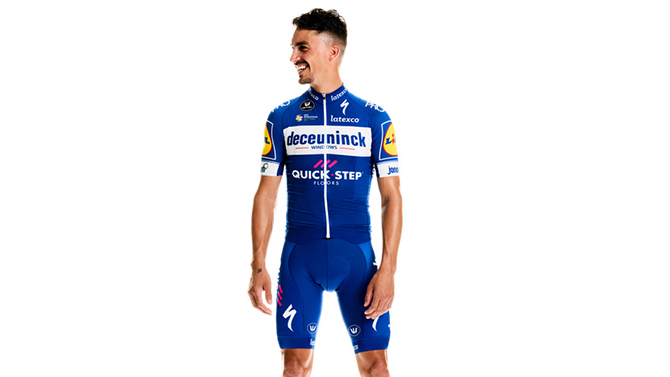
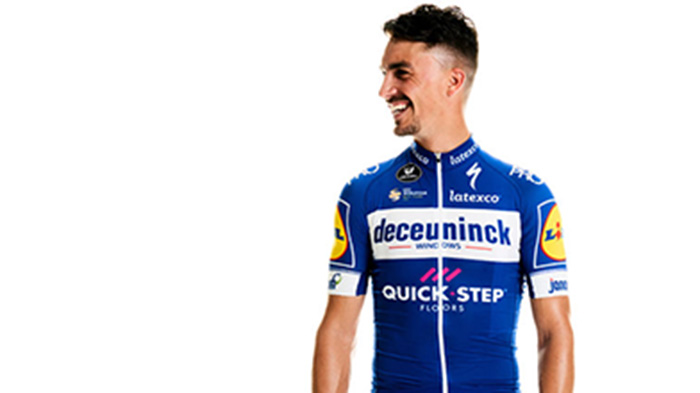
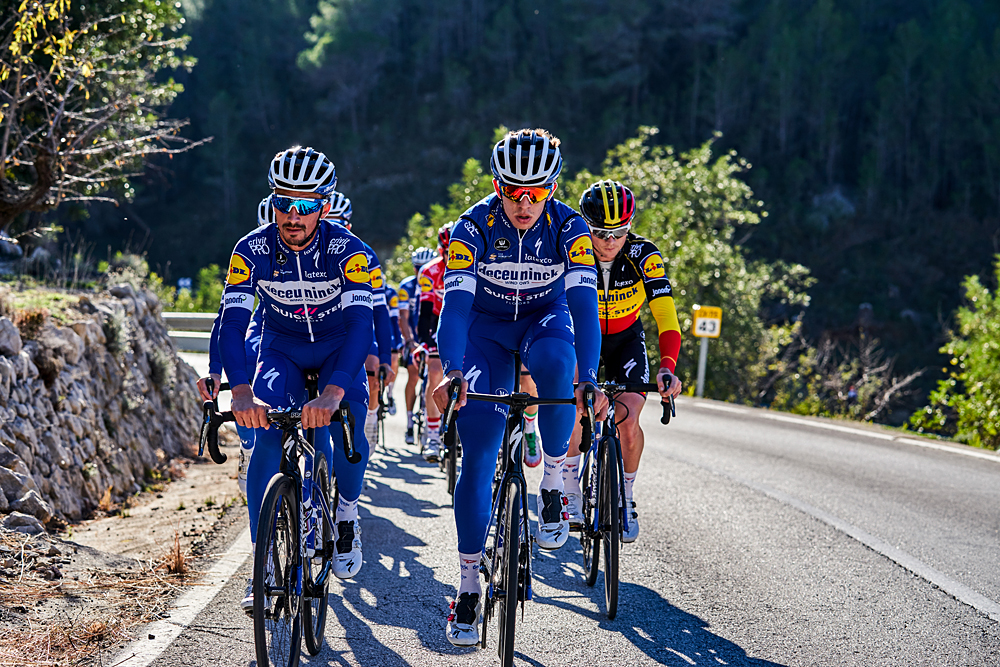
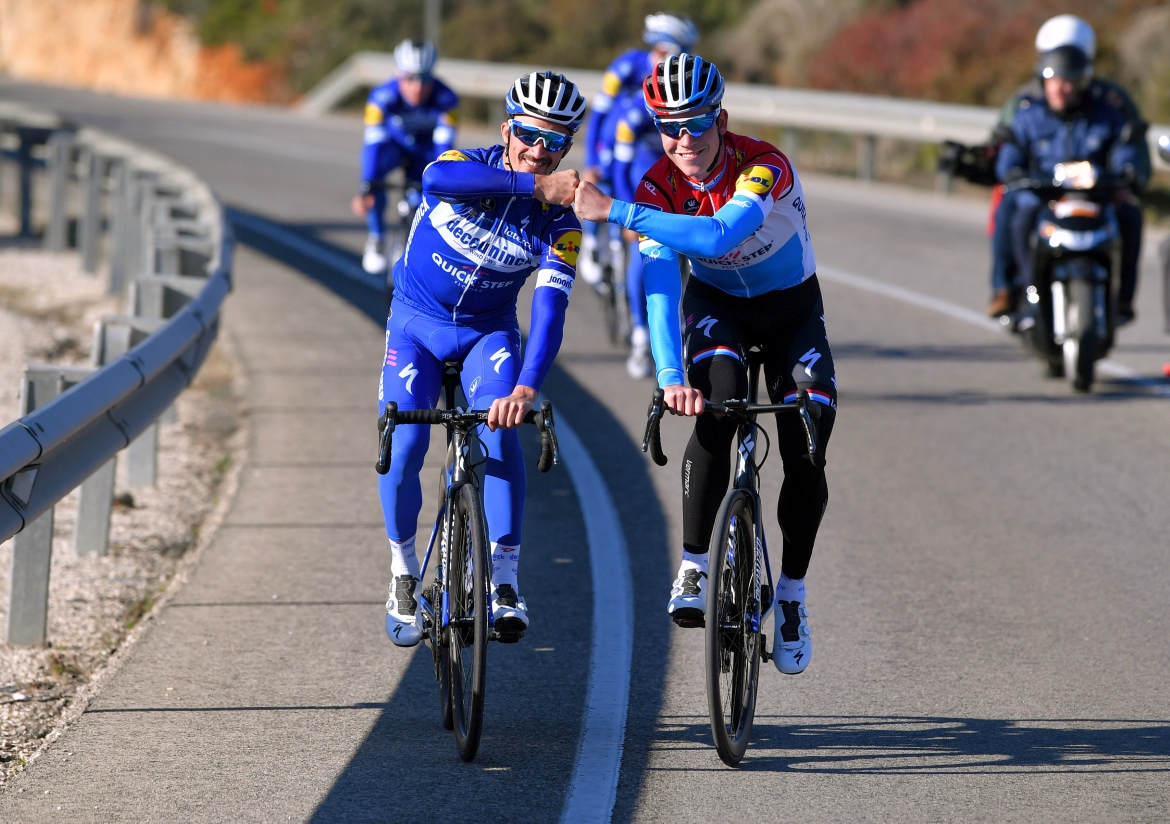
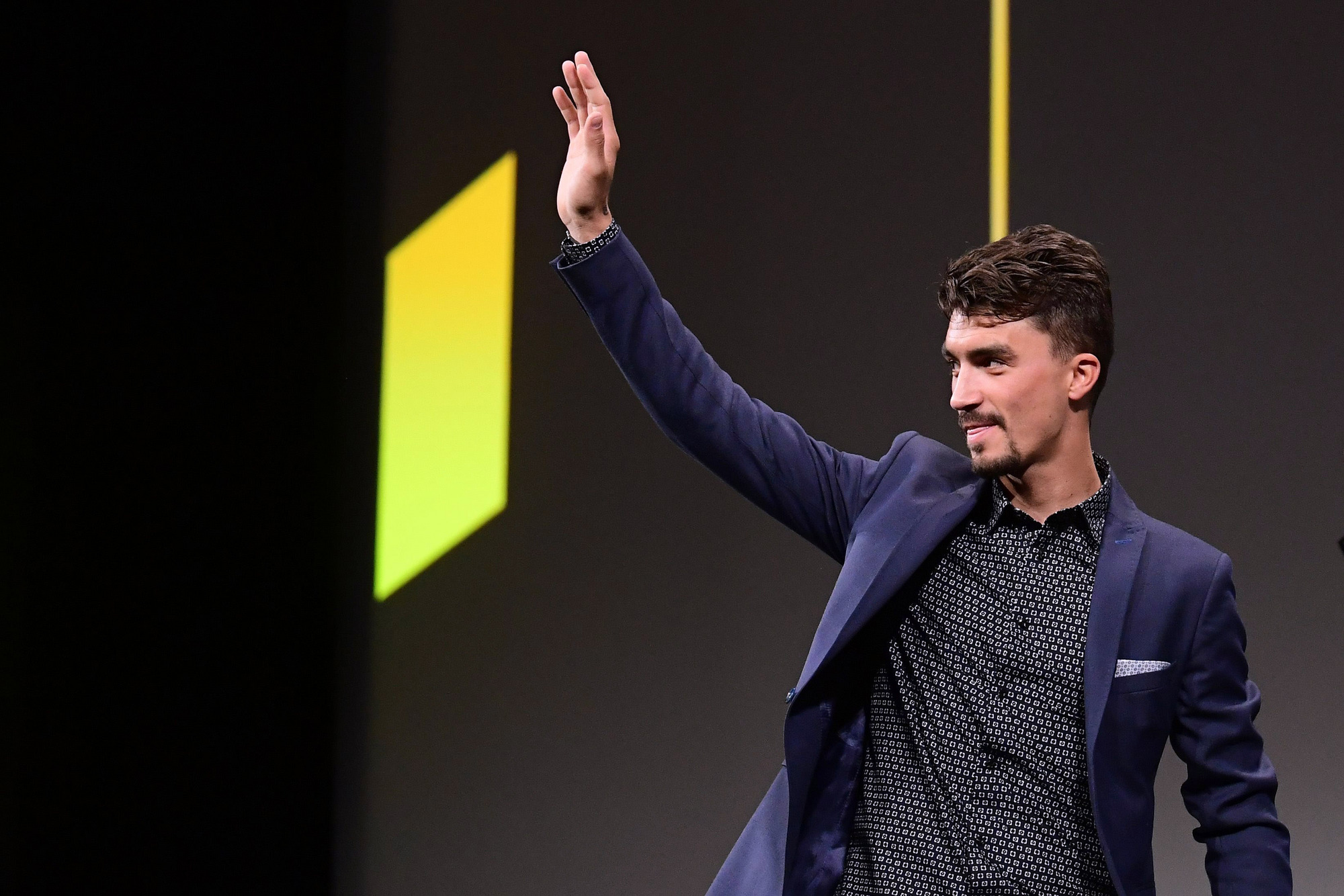
There's an old maxim in football that says if you go a goal up early on, you should pretend it's still nil-nil and try to continue playing with the mindset with which you started the game. Julian Alaphilippe seems to be tapping into that as he reflects on a breakthrough 2018 season and prepares to try and back it up in 2019.
"Looking in the rearview mirror, let's say I raised the bar," Alaphilippe said in an interview at Deceuninck-QuickStep's team presentation in Calpe this week, before later adding: "Now the meter goes back to zero."
Alaphilippe has been destined for big things ever since bursting onto the scene with podiums at La Flèche Wallonne and Liège-Bastogne-Liège in 2015, his second season as a professional. Yet, despite winning the Tour of California in 2016 and a stage at the Vuelta a España in 2017, the Frenchman hadn't quite done much as everyone had expected in the subsequent years. Crucially, there was no big Classicvictory and no stage win at the Tour de France, though that can largely be explained by the knee injury that ruled him out of both the Ardennes races and the Tour in 2017.
In 2018, though, everything fell into place and the Frenchman produced a string of results that did justice to his already-obvious talent. He made his Ardennes breakthrough by ending Alejandro Valverde's reign at La Flèche Wallonne, and enjoyed a heady July with two stage wins and the polka-dot jersey at the Tour de France. He won almost everywhere else he went, too, starting with a stage win in Colombia in February, followed by two at País Vasco and one at the Dauphiné. Following the Tour de France he won the Clásica San Sebastián, a stage and the overall at the Tour of Britain, and a stage and the overall at the Tour of Slovakia. He ended the year with 12 victories, trebling his tally from his first four seasons as a pro.
"It's true that I made a big step last year. I've always been quite consistent in my results, but last year there was a big difference," he said.
"Colombia was important. I'd never won a race so early. That was good for morale - it gave me confidence and told me my pre-season had gone well. It was a great way to launch the season. After that, things went quickly, on the back of each other, and I hit all the objectives I set myself. It was a sort of spiral where everything's going well, and more leads to more leads to more."
Alaphilippe said he felt more confident and more explosive in his attacks, but, as for the reasons behind such a rich vein of form, he insisted it was the combination of two simple ingredients: time and effort.
Get The Leadout Newsletter
The latest race content, interviews, features, reviews and expert buying guides, direct to your inbox!
"A lot of hard work went in. I've always worked hard and have always believed I could get there. When you work hard that's the reward," he said.
"Also, it's time. Whether it's a Monument or Tour stages or whatever, you don't win straight away. I remember my first Tour in 2016, I went in lots of breaks and was not far off winning, but something was lacking. I think with the passing of the years, I've gained what I was lacking, and that has allowed me to win instead of finishing on the podium."
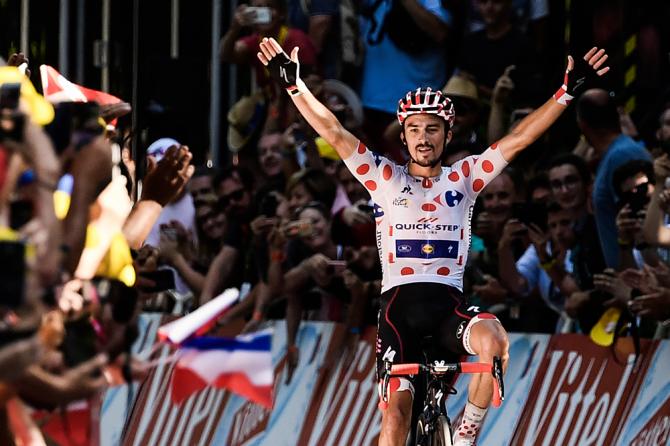
Staying at the top
Twelve months ago, Alaphilippe faced the pressure of finally landing those big, career-defining results. Now, it's a different sort of pressure - that of backing them up.
"Yes, it's true that now, naturally, the expectations are different," he said, before firing off a pre-emptive warning. "You shouldn't forget that last season was an exceptional one for me. It's difficult to have seasons like that every year."
Alaphilippe will once again build his season around the Ardennes Classics and the Tour de France, though there are a couple of minor alterations. He will start earlier, in January at the Vuelta a San Juan, before remaining in South America for the Tour Colombia in February.
After the South American block comes the Italian block, with Strade Bianche and Milan-San Remo sandwiching Tirreno-Adriatico, which he's riding instead of Paris-Nice for the first time. Païs Vasco will then take him into the three Ardennes Classics - Amstel, Flèche, and Liège - before a break in May and then the build-up to the Tour via the Dauphiné.
"Now you have to re-set the meter to zero. Preparation for the new season is well underway, the first race is not far away, so I'm motivated and keen to pick up where I left off," Alaphilippe said.
"In cycling, anything can happen. You can fall ill, you can get injured, you can go through difficult moments that can stop you putting a string of results together. I hope I don't go through that this year. I'm going to work hard to maintain my condition and progress my level.
"The difficult thing, after a season like that, is remaining at the highest level. That really motivates me, so I'm going to work hard…" he said, before interrupting himself with a laugh: "That seems to be the only thing I'm able to say."
Despite the success of last year, there's no resting on his laurels. Julian Alaphilippe is as driven as ever. It's still nil-nil.
Patrick is a freelance sports writer and editor. He’s an NCTJ-accredited journalist with a bachelor’s degree in modern languages (French and Spanish). Patrick worked full-time at Cyclingnews for eight years between 2015 and 2023, latterly as Deputy Editor.
